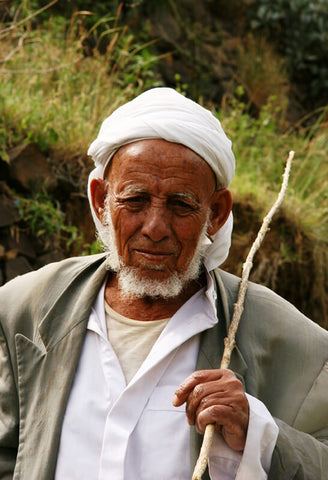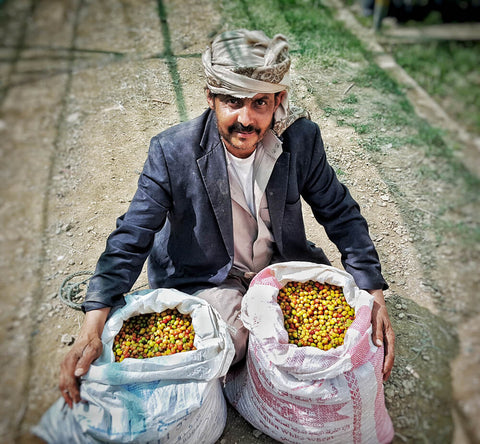In this second installment of our three part “what and why” series I’m going to talk about what we do for coffee farmers and why. If you read our first part, you can see that we are trying to do as many things as possible to improve the coffee supply chain for roasters. But where we are most different than others in the business is in what we do to improve things for the farmers.
The reason I changed our business from roasting to importing coffee was because I got frustrated with the limited amount of change I saw in the industry in terms of providing greater benefit to the farmers. The need for change has been talked about for a long time. Some people were doing good things. In my mind though, not enough was being done and change was coming about much too slowly. Most frustrating of all were all of the people that were claiming to work for change that weren’t at all.
The group of people actually doing good things for farmers in the coffee industry is very small. Most are simply good marketers. Some are creating havoc in communities by buying only a small portion of the crop with no loyalty. Others are flat-out getting rich by hiding profits on the back end at origin and selling coffee for big margins.
Our approach is simple, but different. First of all, we try to be careful about the farmers and the sourcing partners we work with, because our goal is to partner with them for life. We are not batting 1000 in this. We have been burned badly a couple times already in just our first two years. This is one of the most difficult, but obviously one of the most necessary, aspects of this business.

When we begin a new life-long partnership we start by beginning to understand where the farmer is coming from and where they want to go. Sometimes we have to help a farmer get over challenges they faced in the past. We always have to know where the farmer wants to go in the future because our goal is to be their partner in achieving their goals. So we spend some time learning about things “on the ground” where they are. This has given us huge insight into the real nuts and bolts of the green coffee industry in a very short time. The revelations have typically been a little disturbing.
Together with the farmer we decide on a new commercialization strategy for their whole crop. Right now most of our work revolves around investing the intellectual property we’ve accumulated into the farmer’s operations. In the future we’re hoping to be in a position to invest financially into farmers operations. 100% of the first four containers we imported to the US were the first exports to the US for the farmers we were working with. This meant we needed to help them with ICO registrations, exporter registrations, FDA registrations, and even arranging the shipping from the dry mill to the shipping port.
This is another thing we do for farmers. Most people buy coffee FOB from the shipping port at origin. A lot of back-door business can be hidden in this FOB price as we have already found out. We’ve even encountered a situation where our own sourcing partner (no longer a partner) was double-charging farmers for the government export taxes at origin. FOB contracts also place an added burden on small farmers that aren’t equipped or experienced enough to transport their coffee to the port. We buy coffee EXW almost 100% of the time. This allows us to take that burden off the farmer and have greater control over the costs and the process.
Another major difference in what we do for farmers is how we set our purchase prices. Most people aim to buy low and sell high. Even if they’re trying to secure a little more money for the farmers. We do almost the opposite. Every time we do a new contract we do a current market evaluation of similar coffees to the one we’re buying. This gives us our sales prices for the different lots. From this we back out our costs which are typically pretty stable. We leave a little margin for error and then only target a 3% net profit margin. (We also work to keep our overhead as low as possible.) After all this is said and done we are left with what we can afford to pay for the coffee. In simple terms, we aim to pay the farmer as much as the market will allow us to pay them. What this means in real terms is usually quite significant. For instance, we just contracted a container from one farm with lots ranging in grade from 80 to 87 that we will be able to sell for $1.95-3.35 and we were able to pay the farmer almost $24,000 more than they had ever received for one container of coffee before. It was also the first time this farmer had ever exported direct (they had been trying to do it before we came along), and the real secret to success for them was our willingness to buy all their coffee, sorted more specifically than before, at a much higher average price than anyone else would offer them.

The answer to why we do what we do for farmers is probably pretty obvious to everyone. They are a historically oppressed population. All 25 million or so of them. Because of this there are some countries that are experiencing an exodus away from farming by younger generations. Even farmers that have been doing it for decades often lack the motivation to perform fundamental tasks that can easily increase cup scores by multiple points. Farming, especially subsistence farming, is a daily exercise in humility. Issues with literacy, communication with the outside world and easy transport have made them easy prey. I haven’t met a single stupid farmer in my career. They work hard. They aren’t selfish. They deserve to be valued at least as highly as anyone else in the global supply chain.
This is a very open letter. Many of our competitive advantages as a business are outlined right here. I’m not afraid to talk about what we’re trying to do and how large our goals are. I know that there’s really no way that we could buy all the coffee in the world and help every farmer out there. I hope our competitors read this and steal our best ideas to make changes in the way they operate their own businesses.
- Daniel Ehrlich, Founder